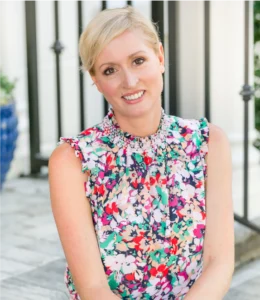During my doctoral studies at UPenn, my classmates and I enjoyed studying a theory of leadership called Resonant Leadership – a leadership approach that focuses on emotional intelligence and creating positive emotional environments within organizations.
The principles of resonant leadership come from the idea in cognitive science of emotional intelligence and its impact on leadership effectiveness and organizational behavior. One key element of Resonant Leadership, which resounded strongly in me, is the focus on finding our noble purpose and aligning our careers and lives to it.
Finding my noble purpose
During my doctoral studies, Dr. Annie McKee guided us through a series of individual reflection and group exercises from the bestselling book Resonant Leadership, by Dr. McKee and Richard Boyatzis, and its accompanying workbook Becoming a Resonant Leader. Before reading these books, I thought I knew my values. Yet after reading and engaging with the exercises, I connected with them on a much deeper level.
Learning how to become a Resonant Leader offered me the opportunity to explore my “noble purpose”—a quality highlighted by Austrian psychiatrist and holocaust survivor Victor Frankl. Mine (as I’ve shared before) is to see global burnout rates plummet.
Burnout Immunity is a USA Today Bestseller!
That’s a big reason why it was so exciting when my book Burnout Immunity made the USA Today Bestseller list! It affirmed that others are eager to learn emotional intelligence skills to develop resilience and heal from work.
That’s what reading Resonant Leadership was like for me: healing, illuminating, galvanizing and more. It’s no exaggeration to say that this book changed my life, lighting a fire in me to write a book that inspires, motivates and empowers others to use their emotional intelligence for good.
An emotional boost for right now
I am so grateful I had the chance to learn from and about resonant leaders in my doctoral studies. Discovering this leadership framework as well as the many real-life stories of resonant leaders helped pave the way to my own research into emotional intelligence, resilience, stress and burnout.
As I wrote multiple times in Burnout Immunity, awareness of what and who we’re grateful for keeps us emotionally centered and positively connected. And although gratitude lists and journals have veered into Instagrammable-meme territory, actively and intentionally experiencing gratitude is an emotional health tonic.
So I’ll wrap up with an invitation: close the app, put down your phone, and think of someone or something you’re grateful for—like how Resonant Leadership changed my life. Think of a few reasons behind your gratitude, and let yourself feel the awe that we—each of us—have the power to impact others in a positive and meaningful way.
It’s amazing to be here, isn’t it?
Grateful for you,
— Kandi



